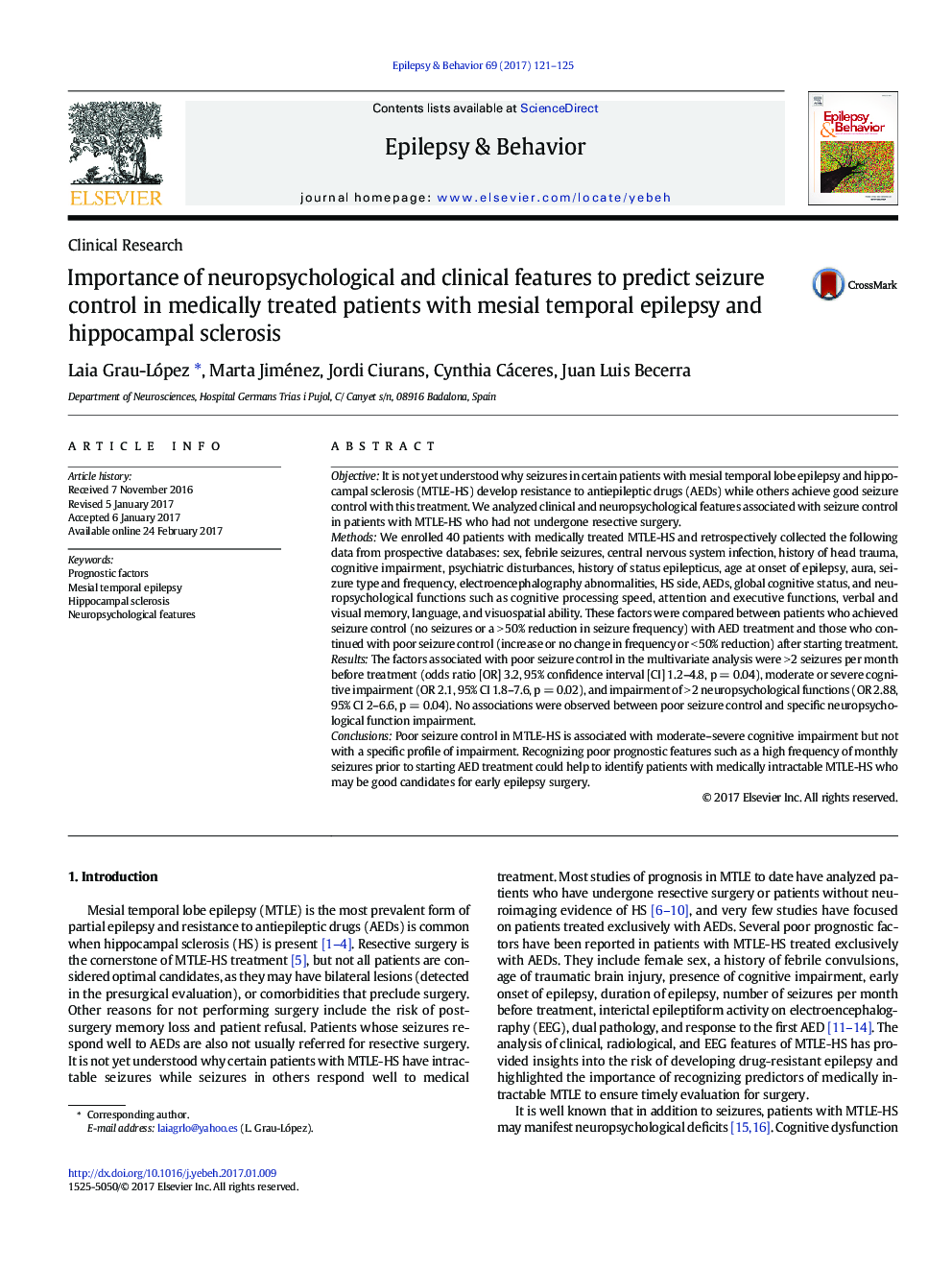| کد مقاله | کد نشریه | سال انتشار | مقاله انگلیسی | نسخه تمام متن |
|---|---|---|---|---|
| 5628410 | 1579823 | 2017 | 5 صفحه PDF | دانلود رایگان |
- In patients with mesial temporal lobe epilepsy and hippocampal sclerosis:
- Poor seizure control is associated with moderate-severe cognitive impairment
- Poor seizure control is not associated with a specific profile of impairment
- Impairment of >Â 2Â neuropsychological functions is associated with poor seizure control
- Patients with >Â 2Â seizures a month before treatment were more likely to have poor seizure control than those with fewer seizures
ObjectiveIt is not yet understood why seizures in certain patients with mesial temporal lobe epilepsy and hippocampal sclerosis (MTLE-HS) develop resistance to antiepileptic drugs (AEDs) while others achieve good seizure control with this treatment. We analyzed clinical and neuropsychological features associated with seizure control in patients with MTLE-HS who had not undergone resective surgery.MethodsWe enrolled 40 patients with medically treated MTLE-HS and retrospectively collected the following data from prospective databases: sex, febrile seizures, central nervous system infection, history of head trauma, cognitive impairment, psychiatric disturbances, history of status epilepticus, age at onset of epilepsy, aura, seizure type and frequency, electroencephalography abnormalities, HS side, AEDs, global cognitive status, and neuropsychological functions such as cognitive processing speed, attention and executive functions, verbal and visual memory, language, and visuospatial ability. These factors were compared between patients who achieved seizure control (no seizures or a > 50% reduction in seizure frequency) with AED treatment and those who continued with poor seizure control (increase or no change in frequency or < 50% reduction) after starting treatment.ResultsThe factors associated with poor seizure control in the multivariate analysis were > 2 seizures per month before treatment (odds ratio [OR] 3.2, 95% confidence interval [CI] 1.2-4.8, p = 0.04), moderate or severe cognitive impairment (OR 2.1, 95% CI 1.8-7.6, p = 0.02), and impairment of > 2 neuropsychological functions (OR 2.88, 95% CI 2-6.6, p = 0.04). No associations were observed between poor seizure control and specific neuropsychological function impairment.ConclusionsPoor seizure control in MTLE-HS is associated with moderate-severe cognitive impairment but not with a specific profile of impairment. Recognizing poor prognostic features such as a high frequency of monthly seizures prior to starting AED treatment could help to identify patients with medically intractable MTLE-HS who may be good candidates for early epilepsy surgery.
Journal: Epilepsy & Behavior - Volume 69, April 2017, Pages 121-125
